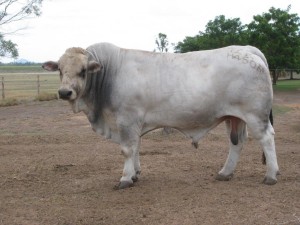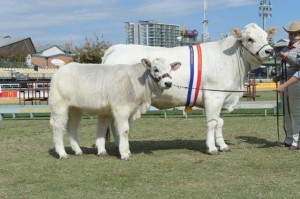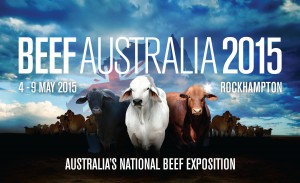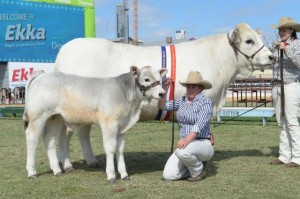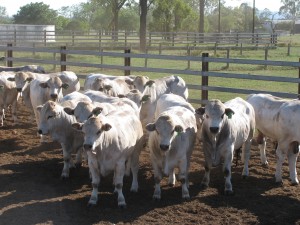
A selection of 2014/15 sale bulls similar to those purchased by Ben Callcott
North Queensland beef producer and client of Wyoming Romagnolas, Ben Callcott, likes his bulls to be work ready when they arrive on Glenmore, 120km south of Einasleigh. That’s why he insists on buying bulls straight out of the paddock. “I don’t like overfed bulls and I find that people won’t bid on bulls in a sale unless they are fat,” he said. “If you buy your bulls at paddock sales they are generally ready to go straight into the bush. “You don’t have a month of having them in the yards and letting them down gently. “You can just cross brand them, put them in the bush and when you go back two months later they’ll look nearly the same.”
Working in a family partnership, Mr Callcott usually runs about 5000 Brahman cross cows that he joins to Brahman and Romagnola bulls. Mr Callcott began using Romagnola bulls from the Pullen family’s Wyoming Stud at Nebo six years ago and has been impressed with the ability of the bulls to survive harsh conditions. “We’ve got about 14 Wyoming Romagnola bulls now and what originally attracted me to them was the fact that they throw a straight colour,” he said. “The calves are generally a nice grey or ginger red and you don’t get too many brindles which at that stage was important in our marketing. “The Romagnola bulls handle this country fairly well. They don’t tend to fall away and seem to survive just fine.”
Mr Callcott said his initial plan was to sell all the Romagnola cross heifers because he thought they wouldn’t be able to handle the conditions. “That hasn’t turned out to be the case,” he said. “They have survived fine and now we are building them into the herd as well.”
The Callcott family own a second property in the Pentland region, Lowhom, which they largely use to finish their steers. Mr Callcott said many of their Brahman steers were sold into the live export market while some of their crossbred steers are either sold direct to works or into the domestic feedlot market.
The Callcott’s control mate, usually joining from November or December through to Easter. “We thought the fact that we control mated would allow us to run softer bulls which encouraged us to get the Romagnolas but what we have found is that they do just fine with no special treatment,” Mr Callcott said.
“We are trying hard to improve the fertility of our herd and a big part of that is buying the right sort of bulls. Ron had all our bulls semen tested when we bought them and they came up fine.”
* Article courtesy of Queensland Country Life. Adapted slightly for use by Wyoming Romagnolas.


